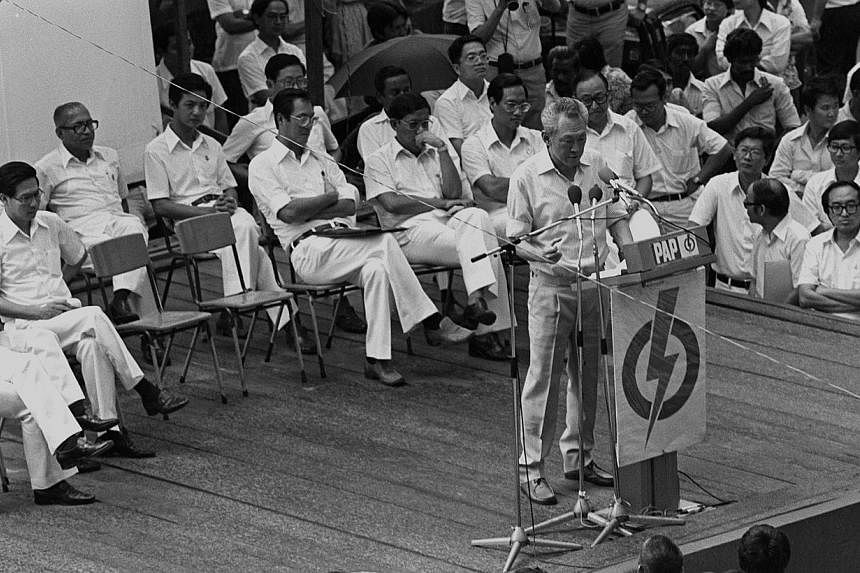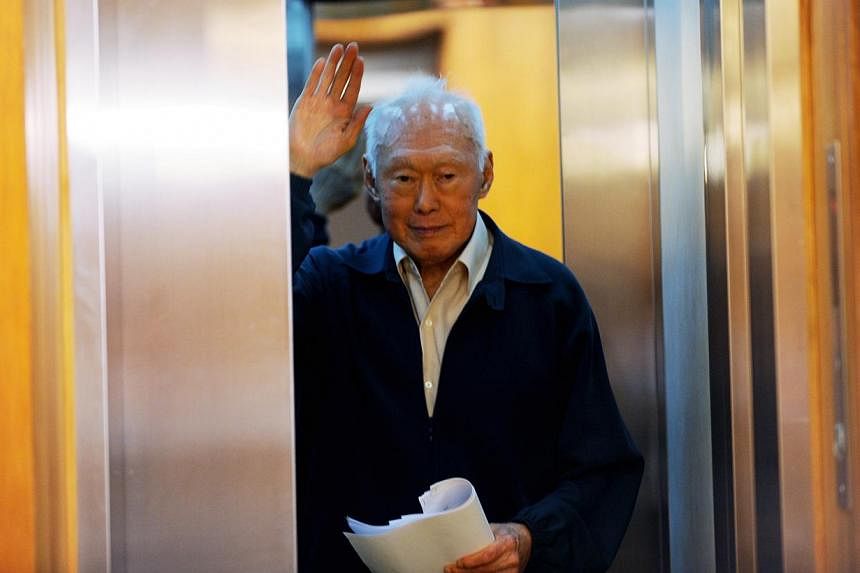It has been a fortnight since Lee Kuan Yew passed away.
Two unique weeks in the country's independent history in which it has not been under the watchful eye of its founding prime minister.
But the sun still rose in the east and the island hasn't sunk.
The inevitable question, though, remains: What will Singapore be like without Mr Lee?
I think most people today believe the country will survive the man.
What they might disagree over is how it will change without him.
He had such a great influence on almost every aspect of life here, even after he stepped down as prime minister in 1990, his absence will almost invariably lead to change.
But what?
There are three areas in which his demise will have the biggest influence, not dramatically or even visibly at first, but steadily and surely.
The biggest impact will be felt by the leadership - both in the ruling party and the administration of government.
Mr Lee was a strong, larger-than-life leader who led from the front with his intellect and charisma.
But even he knew he couldn't do it alone.
The team he built - Cabinet ministers and senior civil servants - developed their leadership qualities through working with him and observing him at close quarters.
He shaped them through his ideas and the force of his personality and conviction.
In turn, they respected and believed in him and were willing to follow his lead and implement his policies.
Mr Goh Chok Tong in his eulogy at the funeral service on Sunday called Mr Lee his great teacher.
Mr Sim Kee Boon, my first boss when I was a civil servant, and who rose to head the civil service, was another example.
His attention to detail, political sensitivity and the high standards he demanded of his staff were trademark qualities that had rubbed off from Mr Lee. There were many others among his close circle of trusted lieutenants who shaped the many different areas they were in charge of.
With Mr Lee's departure will go the direct one-to-one transmission of his leadership DNA.
This is not to say that the current group is not as good as their predecessors. Indeed, they may be more skilful in areas such as technical and financial expertise.
But the differences are real, and when it is about leadership and the type of leaders being developed, you can expect the changes that ensue to be substantial.
Singapore will change as a result of this change in the leadership DNA.
The second area that Mr Lee has had a tremendous influence and which will change with his departure concerns Singapore's international standing.
He was the country's most famous brand, and the numerous tributes from past and present world leaders say quite a bit about his worldwide reputation.
How much this has benefited the country is hard to quantify but I believe it made a big difference.
When your leader is hugely respected and acknowledged, it adds to the country's reputation economically and politically.
The advantage might be intangible but it is the sort of brand recognition that companies pay hundreds of millions in advertising to secure.
And it isn't only in the diplomatic world that Mr Lee made an impact.
He was, in fact, somewhat of an oddity: A Chinese Singaporean who spoke the Queen's English and could debate the best native speakers when defending his record against detractors.
When he was once asked about this by a foreign journalist, he replied with his usual wit: "Criticism or general debunking even stimulates me because I think it is foolish not to have your people read you being made fun of."
His ability to stand tall among foreigners, whether fellow statesmen or critics, had one other important effect: It gave Singaporeans confidence about their country and its future.
This is especially important for a small nation with limited resources which might otherwise have developed an inferiority complex.
How will his death change this?
The present leaders have achieved much since taking over, but they do not enjoy the same stature nor have they developed the same deep relationships Mr Lee had with his foreign counterparts.
How will his departure, for example, affect Singapore's relationship with China?
He had a unique position among Chinese leaders who valued his personal connections with Western leaders and his understanding of the geopolitical issues of the day.
Graham Allison of Harvard University wrote last week that no one outside the United States has had a greater influence on American policy towards a rising China than Mr Lee.
How much of Singapore's special relationship with China will change as a result of his demise is hard to say, but chances are it will. This is especially given China's growing power which will make Singapore less useful to its interests in the years to come.
The third area of possible change is more obviously in politics.
Mr Lee has been the main architect of the country's political culture and he shaped its institutions accordingly.
The Group Representation Constituency system, the knuckle-duster approach towards his political opponents, ministerial salaries, political renewal and succession all bear the hallmarks of his political thinking.
They made him a highly controversial figure to the end, but the result was a Singapore brand of politics which is different from that in many other countries, even those at the same level of economic and social maturity.
But this political landscape is changing, becoming more competitive and diverse in recent years.
The transition to a more pluralistic polity will take place with or without Mr Lee.
But his departure will hasten the process.
Without his tough-minded and uncompromising approach, Singapore politics will become more normal more quickly.
A new generation of leaders will have to find their own way, in tune with the changing expectations of the electorate.
They cannot replicate his political approach because circumstances have changed.
Indeed, if they tried to do so they might fail spectacularly.
The post-Lee era has begun and these changes will follow in time.



